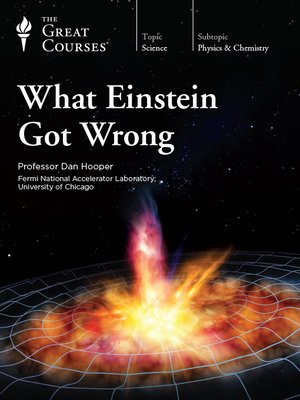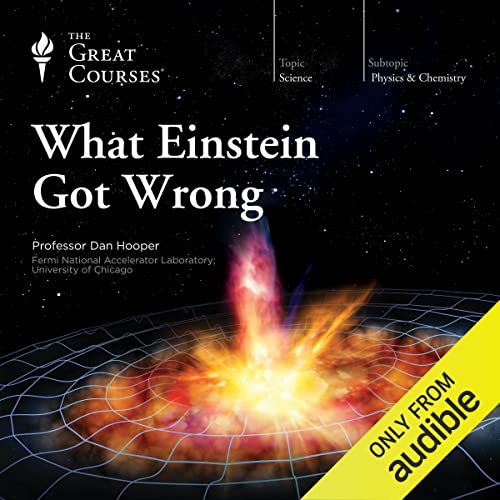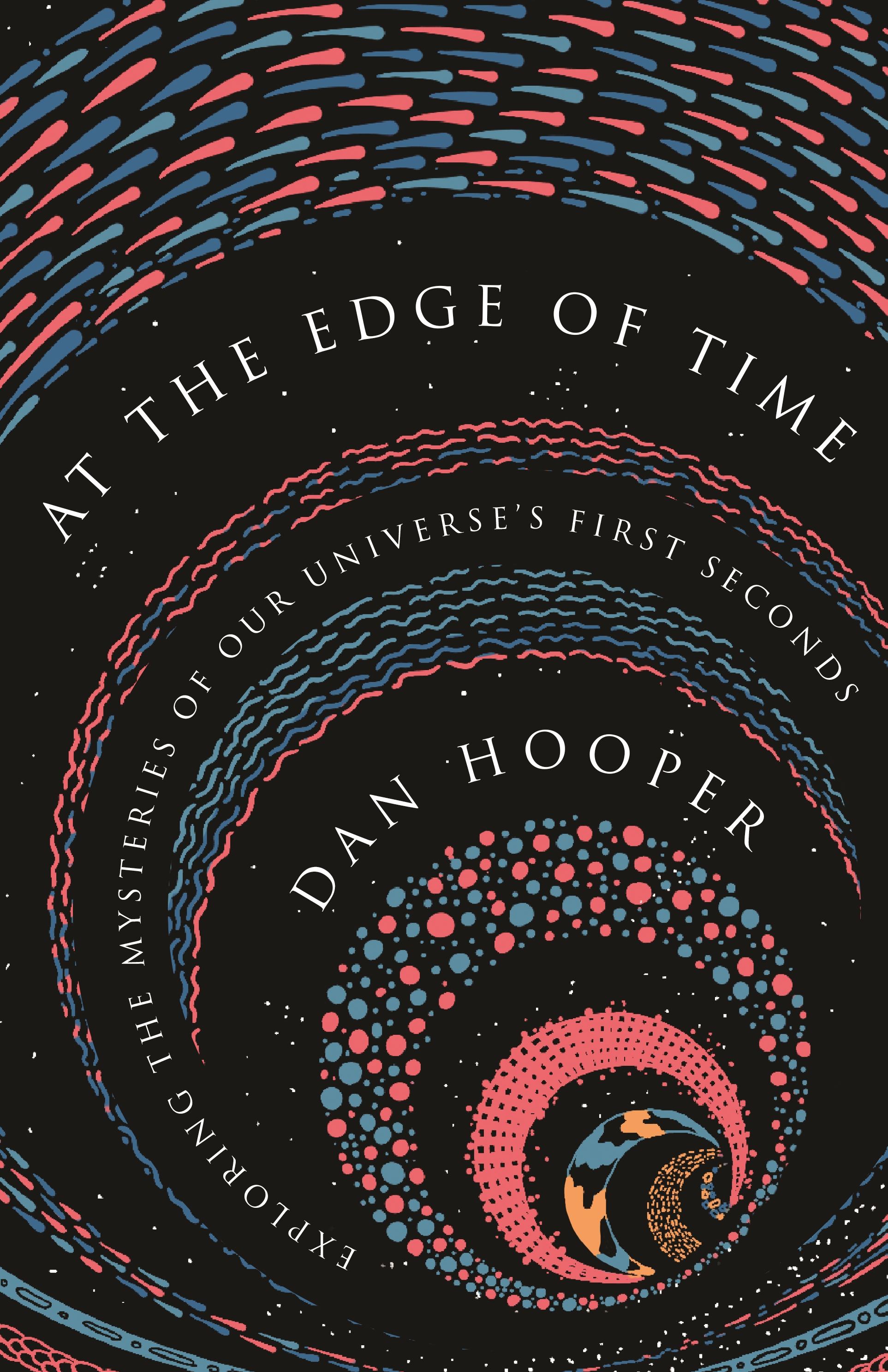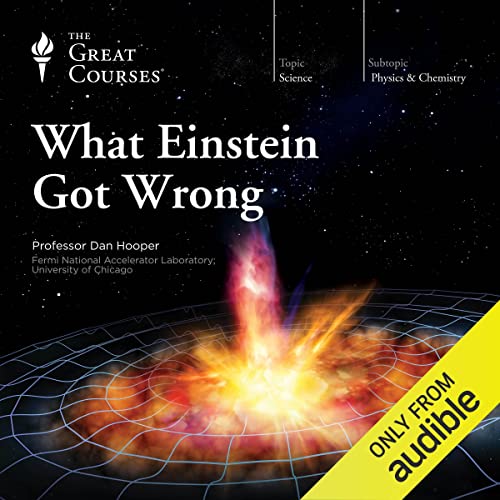Dan Hooper’s audiobook, “What Einstein Got Wrong,” explores misconceptions and errors in Einstein’s theories. It delves into the limitations of his groundbreaking work.
Dan Hooper, a renowned physicist, offers an engaging exploration of Einstein’s scientific contributions and errors. “What Einstein Got Wrong” takes listeners on a journey through the complexities of theoretical physics. Hooper highlights the brilliance of Einstein’s work while also addressing where he faltered.
This audiobook provides a balanced perspective, making intricate scientific concepts accessible. It’s perfect for anyone interested in the history of science or the evolution of modern physics. Hooper’s clear explanations and engaging narrative make this an essential listen for both science enthusiasts and casual learners. The audiobook encourages a deeper understanding of Einstein’s lasting impact and the ongoing quest for knowledge.

The Genius Of Einstein
The Genius of Einstein is a captivating subject that continues to fascinate many. Dan Hooper’s audiobook, What Einstein Got Wrong, delves into the brilliant mind of Albert Einstein. It explores both his monumental achievements and the rare instances where he faltered.
Early Contributions To Physics
Albert Einstein made significant contributions early in his career. He published four groundbreaking papers in 1905, known as the Annus Mirabilis papers. These works covered the photoelectric effect, Brownian motion, special relativity, and mass-energy equivalence.
- Photoelectric Effect: This paper explained how light can eject electrons from a material.
- Brownian Motion: Einstein provided a mathematical model for the random movement of particles.
- Special Relativity: He introduced the concept that time and space are not absolute.
- Mass-Energy Equivalence: This is summarized by the famous equation E=mc².
The Birth Of Relativity
Einstein’s theory of relativity changed our understanding of the universe. He introduced special relativity in 1905 and general relativity in 1915. These theories revolutionized physics.
Special relativity addressed the relationship between time and space. It stated that the laws of physics are the same for all non-accelerating observers. This means that time can slow down or speed up, depending on how fast one is moving.
General relativity expanded on this by including gravity. Einstein proposed that massive objects cause a distortion in space-time. This theory explained the orbit of planets and the bending of light around stars.
Einstein’s work laid the foundation for modern physics. His theories have been confirmed by many experiments and observations. Even today, his ideas continue to influence scientific research.
Challenging Einstein’s Theories
Dan Hooper’s audiobook, What Einstein Got Wrong, dives into the heart of science. The work explores where Einstein’s theories might fall short. Hooper’s discussions are both enlightening and thought-provoking. This section focuses on critiques and advancements in science.
Contemporary Critiques
Modern scientists often challenge Einstein’s ideas. They argue that his theories, while groundbreaking, have limitations. These critiques focus on areas like quantum mechanics and black holes. Many believe Einstein’s theories don’t fully explain these phenomena.
- Quantum Mechanics: Einstein struggled with quantum theories. His famous quote, “God does not play dice,” highlights his discomfort.
- Black Holes: Einstein’s equations predict black holes, but he didn’t fully accept them.
Modern Scientific Advancements
Today, scientists build on and expand Einstein’s theories. They use new technology and methods to explore the universe. These advancements help us understand more about space and time.
| Advancement | Impact |
|---|---|
| Gravitational Waves | Proved a key prediction of Einstein’s theory. |
| Quantum Computing | Challenges classical physics and Einstein’s views. |
Scientists continue to test and refine Einstein’s theories. This ongoing process is crucial for scientific progress. By questioning Einstein, we learn more about our universe.
Dan Hooper’s Insights
Dan Hooper, a leading physicist, offers a fresh perspective on Einstein’s theories. His audiobook, “What Einstein Got Wrong,” delivers these insights in an engaging format. Hooper simplifies complex scientific ideas for everyone. This section explores his unique contributions.
The Role Of Audiobooks In Science Education
Audiobooks are transforming science education. They offer a flexible way to learn. You can listen while commuting, exercising, or relaxing. This format suits busy lifestyles. Dan Hooper’s audiobook is an excellent example.
Audiobooks make complex concepts more accessible. They can break down intricate theories into digestible parts. Listeners can replay sections for better understanding. This method aids retention and comprehension.
| Advantages of Audiobooks | Examples |
|---|---|
| Flexibility | Listen anytime, anywhere |
| Accessibility | Replay difficult sections |
| Engagement | Dynamic storytelling |
Bridging Complex Concepts To A General Audience
Dan Hooper excels at bridging complex concepts to a general audience. He uses simple language and relatable examples. This approach demystifies advanced physics topics. Einstein’s theories become clear and understandable.
Hooper’s storytelling engages listeners. He uses vivid descriptions and analogies. This makes the science come alive. Listeners feel they are part of the journey.
- Simple language makes complex ideas clear.
- Relatable examples connect with everyday experiences.
- Vivid descriptions enhance understanding and retention.
Dan Hooper’s audiobook is a valuable resource. It educates, entertains, and inspires. His insights make science accessible to all.


Conclusion
Dan Hooper’s audiobook, “What Einstein Got Wrong,” offers fascinating insights into scientific discoveries. It’s a must-listen for science enthusiasts. The engaging narration makes complex topics accessible. Dive into the audiobook to explore the evolving world of physics. This compelling listen will leave you pondering the future of science.



